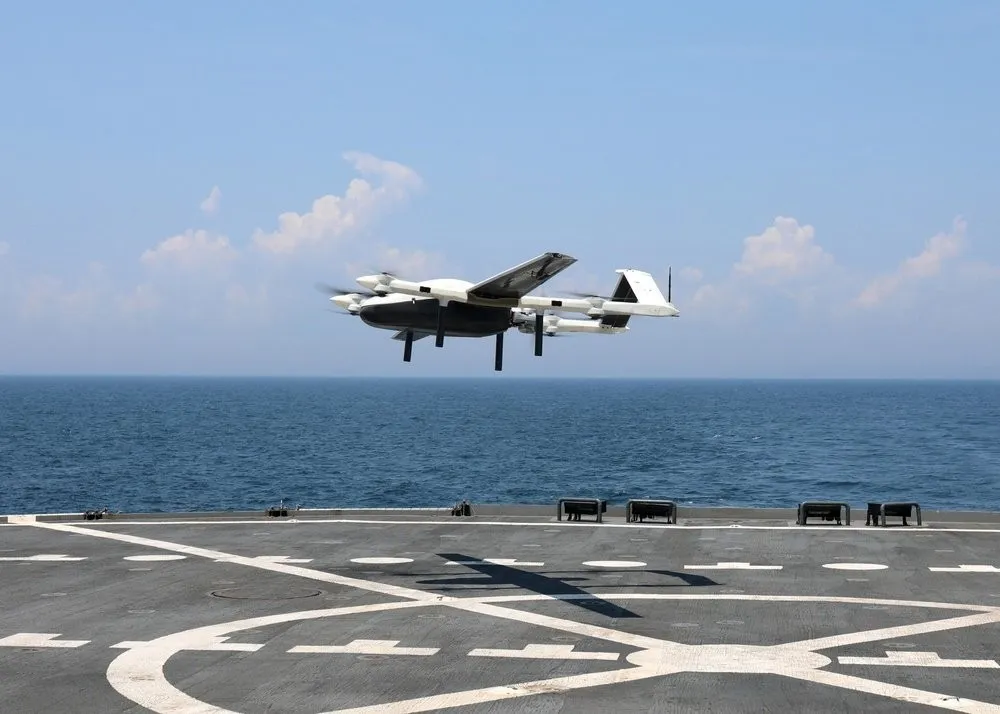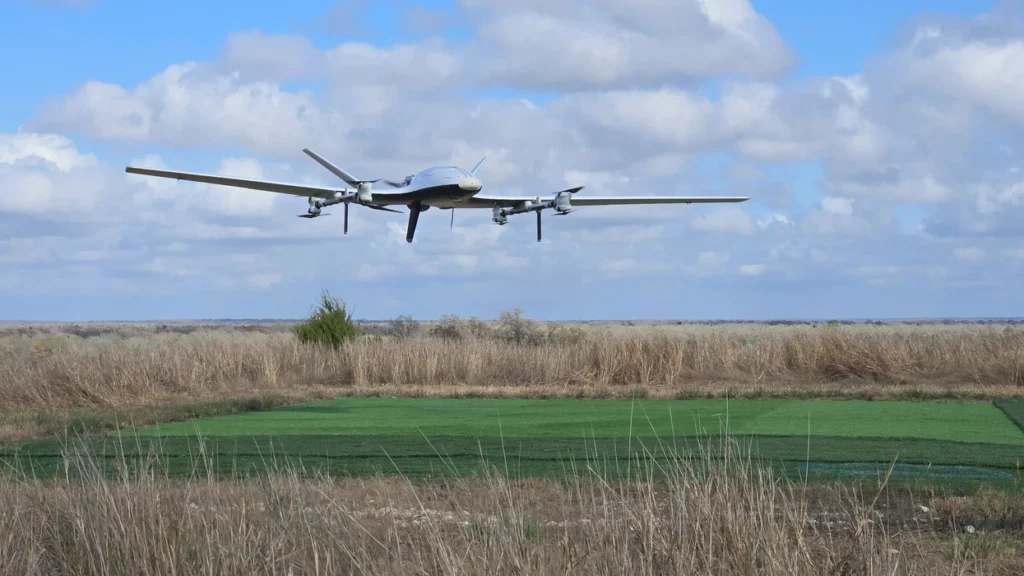
Skyways Wins $37M USAF Deal to Scale Cargo Drones
Skyways, a pioneering designer and manufacturer of long-range autonomous unmanned cargo aircraft, has announced a significant milestone in its mission to revolutionize aerial logistics. The company has been awarded a $37 million contract by AFWERX, the innovation arm of the U.S. Air Force (USAF), to advance its V3 unmanned cargo aircraft from prototype stage into full-rate production. This funding marks a major validation of Skyways’ unique approach to developing next-generation autonomous logistics platforms and positions the company for scaled deployment across both military and commercial sectors.
The USAF’s backing through AFWERX is part of a broader effort to modernize logistics operations using autonomous systems that offer speed, flexibility, and cost efficiency. Under this contract, Skyways will finalize the production-ready design of its V3 aircraft, scale up its manufacturing capabilities, and further develop its proprietary autonomy software stack to support large-scale deployment. The company aims to establish the V3 platform as the official Program of Record for unmanned aerial logistics within the U.S. defense ecosystem.
Skyways’ V3 represents a major leap forward in unmanned aerial vehicle (UAV) design and capability. Built on the success of the company’s earlier V2 model—which is already in use conducting long-range logistics missions with commercial partners—the V3 introduces substantial upgrades. It offers a payload capacity of 100 pounds, a maximum range exceeding 1,000 miles, and flight durations of more than 20 hours. These features position the V3 as a game-changing solution for critical logistics operations in austere or high-risk environments where traditional aviation solutions may be impractical or cost-prohibitive.
One of the core technological differentiators of both the V2 and V3 aircraft is Skyways’ double-hybrid propulsion system. This configuration allows the aircraft to take off and land vertically like a helicopter—eliminating the need for runways—while cruising with the efficiency of a fixed-wing airplane. The system combines electric and fuel-powered propulsion, striking a balance between endurance, payload capacity, and operational flexibility. This makes the Skyways platform well-suited for missions ranging from emergency supply delivery to military resupply and remote industrial logistics.
The funding from the U.S. Air Force comes at a pivotal time for Skyways, as the company prepares to transition from a development-focused organization into a high-volume aircraft manufacturer. CEO and Co-Founder Charles Acknin emphasized the company’s unconventional but highly effective development strategy as a key factor in securing the contract.
“Skyways is landing contracts well above its weight class and that’s no accident,” said Acknin. “Our approach is different from most companies—we self-fund and build full-scale, flying aircraft early in development, so our customers see real, working systems rather than PowerPoint slides. This lean, hands-on method enables us to iterate quickly, demonstrate capability early, and build confidence with partners like the USAF.”
Indeed, Skyways’ early decision to focus on practical demonstrations of technology rather than theoretical promises has helped it stand out in a crowded and often hype-driven aerospace startup landscape. By flying full-scale aircraft early and continuously refining both hardware and software through real-world missions, Skyways has been able to de-risk its platform and attract the attention of both government and commercial buyers.
The V2 aircraft, which laid the foundation for the V3, has already been deployed for long-distance cargo transport missions with commercial clients. With a payload of 30 pounds and a range of up to 500 miles, the V2 has proven its reliability and performance in operational settings. The V3 takes these capabilities to the next level, expanding both payload and endurance to support a wider array of missions, from humanitarian aid to tactical resupply in contested areas.

Looking ahead, Skyways has an ambitious roadmap. Over the next five years, the company aims to build the world’s largest fleet of autonomous logistics aircraft. This will require scaling not only aircraft production but also supporting infrastructure such as ground control stations, maintenance systems, and logistics hubs tailored to autonomous operations.
Central to Skyways’ value proposition is its autonomy stack, a suite of onboard software and sensors that enable the aircraft to operate safely and efficiently with minimal human oversight. This technology is critical for enabling scalable logistics solutions, particularly in environments that are either too dangerous or too remote for conventional crewed aircraft. Skyways is investing heavily in maturing this autonomy system to ensure high levels of reliability, safety, and regulatory compliance as it moves into mass deployment.
The implications of Skyways’ platform extend far beyond defense. As global logistics networks grapple with rising costs, supply chain disruptions, and labor shortages, autonomous aerial transport is increasingly seen as a viable solution. Markets such as e-commerce, pharmaceuticals, oil and gas, and disaster relief could benefit immensely from reliable, long-range, autonomous cargo aircraft that can deliver goods quickly without the constraints of traditional infrastructure.
According to industry analysts, the global logistics market—valued in the hundreds of billions of dollars annually—is ripe for disruption. Skyways believes that by making autonomous aerial cargo transport both affordable and scalable, it can unlock significant commercial opportunities while also supporting national security objectives.
From a broader policy perspective, the U.S. Department of Defense has been actively seeking innovative solutions to maintain logistical superiority in future operating environments, particularly in contested or distributed theaters. Autonomous logistics aircraft like the Skyways V3 can play a key role in enabling sustained operations without putting human pilots or expensive crewed platforms at risk.
Skyways’ participation in the AFWERX program underscores the Department of the Air Force’s commitment to sourcing cutting-edge technologies from non-traditional defense contractors. By leveraging programs such as AFWERX and SBIR (Small Business Innovation Research), the military is able to engage with agile startups and accelerate the integration of breakthrough capabilities into its force structure.
While the views expressed in Skyways’ announcement are those of the company and do not necessarily reflect the official stance of the U.S. Air Force, the Department of Defense, or the federal government, the contract award signals a strong level of institutional support and confidence in Skyways’ vision and execution.
As Skyways continues to refine its aircraft designs, expand its production footprint, and build strategic partnerships, it is well-positioned to become a central player in the emerging field of autonomous aerial logistics. With the V3 poised for large-scale rollout, and the backing of the U.S. Air Force helping to catalyze this transformation, the company is on track to redefine how cargo is moved in the 21st century.
In a world increasingly shaped by the need for agile, autonomous, and cost-efficient logistics solutions, Skyways’ vision of a global fleet of uncrewed cargo aircraft may soon become a critical component of both military readiness and commercial supply chains.

